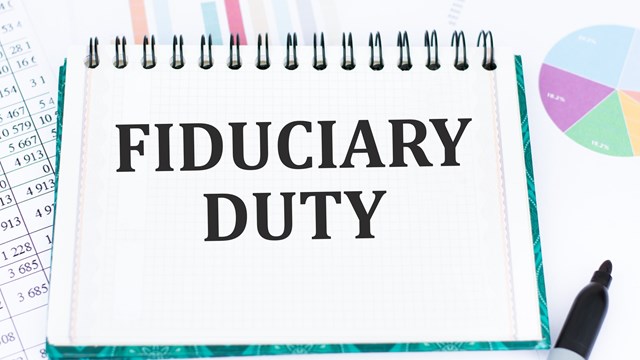
IIndividual commitment to a group effort; that's what makes a team work, a company work, a society work, a civilization work.
Legendary Green Bay Packers football coach Vince Lombardi left condo boards and managers off his short list, but his wisdom about commitment and teamwork could certainly apply to boards and management companies.
According to experts, the most successful board/manager relationships cultivate when both parties have mutual trust and respect, with courteous communication among all individuals involved.
“The best relationships are the ones that have a mutual trust and respect for one another, with courteous communication among all parties (especially if there is a difference of opinion),” says Cynthia Graffeo, senior property manager and director of client relations at Argo Real Estate in New York City. “A partnership that has these characteristics allows a board and management to work as a team to effectively run the building in a professional and business-oriented manner.”
“In an ideal relationship, the management company handles day-to-day details while keeping the board’s overall philosophy in mind and presents the board with concepts and suggestions for improvement, and then the board approves or rejects it ,” says Dan Katz, a board member based in Jersey City.
An ideal relationship starts with an understanding of responsibilities, which are typically specified in management contracts: the responsibility of the property manager is to provide the board with information necessary to make decisions; the board must use this information to accomplish goals for the association.
Any solid relationship must establish goals and expectations, communicate openly, and maintain honesty. “Honesty is most important on both sides,” says Josh Koppel of Yonkers-based HSC Management Corp., who is also a member of The National Association of Residential Property Managers. “If a manager is not being honest and giving the full picture, how can the board make an intelligent decision? If the board is only giving the manager half a story, or the story doesn’t really exist, how do you address the situation?”
Koppel exemplifies that a board may want to start legal action on a resident who is a hoarder, telling the property manager that the apartment smells. “We decide to do an inspection first, and the apartment is spotless, so what’s going on here?” he asks. “Obviously, someone has an ax to grind with that resident and didn’t tell the other board members the truth.”
Meeting Expectations
The property manager has a responsibility to work together with the board and be accessible to board members in regard to building concerns. “Boards should never hesitate to contact their property manager with any questions or concerns,” says Graffeo.
“Property managers are problem solvers who have a wide array of knowledge in building operations,” she says. “This can range from oversight of capital improvement projects and apartment alterations to violation prevention and removal, to preventative maintenance and safety, to repairs and handling of emergency situations. Let us know how we’re doing and if there is anything we can do better. We’re here to serve the board and the residents that live in the buildings we manage.”
Remember, however, that there is no ‘I’ in team. No one is working alone. In every building, you are working with board members of different ages and personalities, such as the fictitious Mr. Garr, a likeable 61-year-old man who has been a resident and member of the association for 20 years. He knows the neighborhood and has witnessed many board changes, and is currently serving as treasurer.
In another building, however, there’s (the also fictitious) Mr. Chane, a hard-working businessman who is always late for meetings and shares qualities with a gruff miser. Yet, in another building, Mrs. Curry is a stay-at-home mom with three children who takes minutes of the paperwork. Her personality flashes between hot and cold, and the board’s meetings are long and tedious.
Managing co-ops or condos that house residents from varied backgrounds, language groups, and cultural perspectives means working with board members that sometimes pose distinct challenges. A manager might find himself talking with an entrepreneurial Japanese couple who speaks little English or members in a predominately Hispanic community where Spanish is the primary language.
“Who I’m dealing with can be different from building A to building B,” says Koppel. “One building can have nice, easy-going, understandable board members and another can have members who are all self-serving and don’t care about anything but what they want…it’s always someone else’s fault and they aren’t taking responsibility for what they need to get done.”
Crossing these lines can hinder a successful working environment between board and manager. For example, a tenant may approach a board member and discuss a building issue, instead of approaching the manager, or vice versa. These responsibilities should be outlined at the very beginning of the relationship to avoid confusion.
Regardless of who is on the board, their personalities, or their languages, a manager must report to these people, and others, who will critique work and performance, and make decisions, prioritizing certain tasks.
These relationships, however, must not be one-sided, as board members have to work together with management, too. “Treat us like a team member and not like a jack-of-all-trades, master-of-none,” says Koppel. “Everyone can put in input to teach people. Boards should rely on their professionals, and don’t act like you know something if you don’t. If I don’t know, I’ll say I don’t know and try to find the answers.”
The board needs to understand that answers are not found at 11:30 p.m. when the manager has just settled down after a long day. Calling a manager at that time to ask a question isn’t respectful or productive. If the board needs to contact the manager during late hours, it should be by email; at that hour, phone calls are for emergencies only.
“It would be helpful for boards and residents who live in the buildings we manage to understand and appreciate the 24/7 nature of a property manager’s job,” says Graffeo. “We get emergency calls in the middle of the night, or on weekends, and we are there 24/7 for our clients and the buildings we manage.”
Communication is Key
In every successful relationship, communication is vital. To work effectively, board members must be willing to communicate with each other and with the manager. Often, good communication starts with listening, which aids in understanding. It helps if the board is able to stay focused and present clear instructions to the manager.
“For example, when you are talking about finances, communication is extremely important,” says Phil Alampi, president of Condominium Management of New Jersey in Glen Ridge. “The communication not only has to go on between the manager and the board, but it has to go on between the accounting department and the board. It’s usually between one person, the designated financial treasurer, but then it gets communicated to the rest of the board by that person. So it’s not only the communication that goes on, it’s the board member being able to digest all of it and then disseminate it as well.”
“Communication is key between managers and board members,” adds Cindy Petrenko, president of Complete Property Management Services in Vernon. “The manager is the hands-on eyes and ears of the community, but the board ultimately is responsible for the major decisions in that community. Regular communications via management reports, as well as time spent at board meetings and workshops, should give a clear understanding of what a community faces with future projects and planning.”
Boards and managers, like friends and spouses, sometimes bicker. Managers are not happy when board members contact them about trivial concerns at midnight, or harass them with minor worries all the time. Additionally, board officers can change each year, making it difficult for managers to adjust to a variety of styles and personalities. Some managers have to deal with board members who sit on the board to push their own agenda, and also those who break the rules.
According to experts, resolving a problem requires keeping the lines of communication open still. Whether trying to win the Super Bowl, to have a happy marriage, or to run a successful building, team work is vital to success. Have a plan of action of action, communicate well, and fix problems before they become unmanageable…then celebrate success.
Lisa Iannucci is a freelance writer and a frequent contributor to The New Jersey Cooperator. Staff writer Christy Smith-Sloman contributed to this article.






Leave a Comment